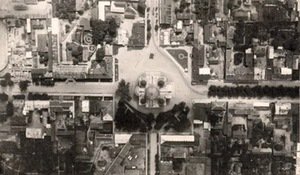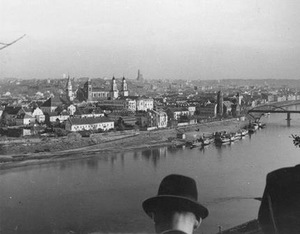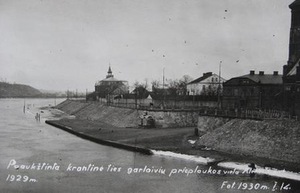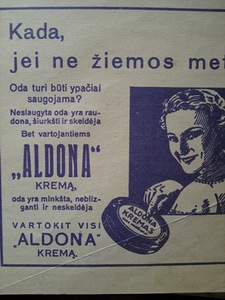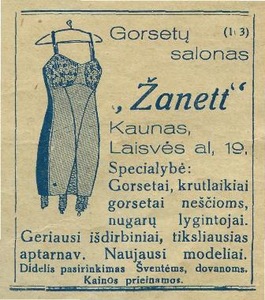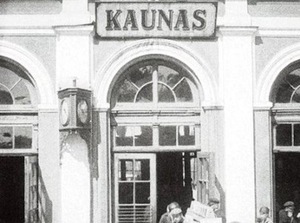Literary Myth of Kaunas (Several Examples) 10
In brief: Many cities of the world have some particular myths about their establishment: everybody knows the myths of Rome, Moscow, Constantinople, Krakow, Vilnius, Jerusalem and other cities. Still, there are cities that do not have their real legends of origin and are somehow “less sacred” due to this reason.
American anthropologists Redfield and Singer call such cities heterogeneous and state that, even without the direct mythology, they surely have their spirit, genius loci, which compensates the lack of transcendence. The examples of such cities could be London, New York, Washington and the majority of other megalopolises of the world that appeared in the West after the industrial revolution. The myths of such cities are created by literature and other arts.
Kaunas stands out in the graphic map of cities of the world by the very regular network of streets. The signs of Kaunas authority seem to be created artificially (when the city became the temporary capital of Lithuania in 1919) rather than placed down from the Sky. Therefore, Kaunas appeared in the opposition of the sacred city Vilnius. While Vilnius is idealised, mythologized and full of various legends, Kaunas is seen as “the place of political and business manipulations”. Still, the temporary capital does have its own genius loci, which was testified by fine artists, creators and writers many times. Thus, the article is dedicated to the search of myth of the temporary capital Kaunas and its face in memories and moments described in articles and literature of various researchers and writers: Balys Sruoga, Darius Daukša, Georg Simmel, B. Pūkelevičiūtė, N. Lukšonytė-Tolvaišienė, M. Zingeris.
Still, according to the author, the literary variants of Kaunas myth do not present the final answer. The theme of Kaunas is the endless research of identity, city and contemporary myth. The city that has a strange status in the context of Lithuania (temporary capital, eternally second city of conservers and criminals) does not reflect its history thoroughly. It is like a city without the story of its foundation, without roots, created artificially. This is why its artificial establishment as the capital when Lithuania lost Vilnius in 1919, its short flourishing in the inter-war period looks like the “golden age” of the city, its mythical beginning in the perspective of its later fall and eternal epilepsy.
Nonetheless, the myth of the city’s glorious past, Parisian festival and at the same time irrationality and provinciality is still alive. It is supported by stories of various forms: social researches, publicist articles, and especially literature.








